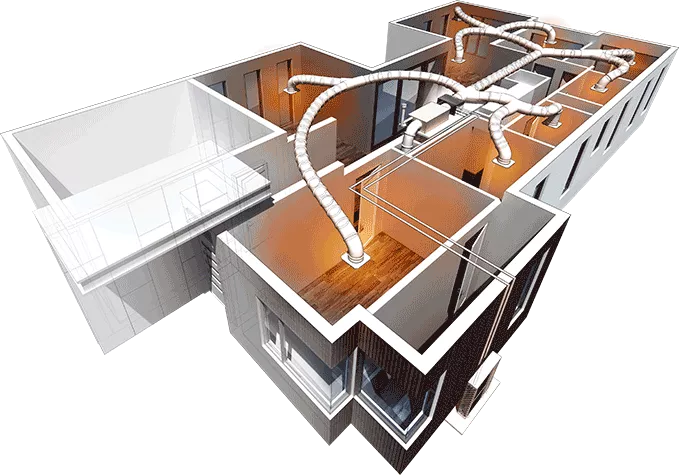Creating a comfortable home environment requires reliable climate control solutions that perform efficiently year-round. For many homeowners, combining an evaporative cooler for your home with a ducted heating system offers the perfect balance of energy efficiency, cost-effectiveness, and comfort. Understanding how these systems work together can help you make informed decisions when upgrading or installing climate control solutions.
Why Choose Evaporative Cooling?
Evaporative cooling is an energy-efficient method of cooling that uses the natural process of water evaporation to lower indoor temperatures. Unlike traditional refrigerant-based air conditioning, evaporative coolers pull warm outside air through water-saturated pads. As the air passes through, it cools and is circulated throughout the home.
Key Benefits:
- Energy Efficiency: Evaporative coolers use significantly less electricity compared to standard air conditioning units.
- Eco-Friendly Operation: No refrigerants are required, reducing the environmental impact.
- Fresh Air Supply: The system brings in a constant flow of fresh, filtered outdoor air.
- Cost Savings: Lower energy consumption results in reduced utility bills.
Investing in an evaporative cooler for your home provides a sustainable, cost-effective way to stay cool during warmer months.
The Advantages of Ducted Heating
When it comes to heating, ducted systems offer efficient, even warmth throughout the home. These systems consist of a central heating unit connected to a network of ducts that distribute warm air to different rooms.
Key Benefits:
- Whole-Home Comfort: Ducted heating provides consistent temperatures across multiple rooms.
- Energy Efficiency: Modern ducted heaters are designed for high efficiency, minimizing energy waste.
- Zoning Options: Many systems allow for zoning, enabling you to heat only the rooms in use.
- Discreet Installation: Ducted vents are unobtrusive, preserving the aesthetics of your home.
Installing a ducted heater can enhance home comfort while keeping energy costs manageable.
How These Systems Work Together
Evaporative coolers and ducted heating systems complement each other to provide year-round comfort. While one system efficiently cools your home during the summer, the other ensures consistent warmth in the winter.
Integration Benefits:
- Balanced Energy Use: Optimize your energy consumption by using the most efficient system for each season.
- Cost Savings: Reducing reliance on less efficient portable units can lower overall energy expenses.
- Improved Indoor Air Quality: Evaporative cooling’s fresh air intake pairs well with ducted heating’s clean, filtered air.
- Seamless Control: Many modern systems can be integrated with smart thermostats for easy, centralized control.
Factors to Consider Before Installation
Before installing either system, consider the following factors to ensure optimal performance and satisfaction:
1. Home Size and Layout
The size and design of your home will determine the capacity and configuration required for both cooling and heating systems. Larger homes may benefit from zoned ducted heating and multiple evaporative cooling outlets.
2. Climate Conditions
Evaporative cooling works best in dry, warm climates. If you live in a humid region, alternative cooling methods may be more effective.
3. Energy Efficiency Goals
Look for systems with high energy efficiency ratings to maximize cost savings and minimize environmental impact.
4. Installation and Maintenance
Choose experienced professionals to handle installation. Proper setup ensures peak performance, safety, and adherence to manufacturer warranties. Regular maintenance is also essential to keep both systems running efficiently.
Tips for Maximizing Efficiency
- Seal and Insulate: Proper sealing and insulation help maintain indoor temperatures and reduce system workload.
- Use Programmable Thermostats: Schedule heating and cooling based on your lifestyle to avoid unnecessary energy use.
- Regular Maintenance: Clean and service evaporative pads, ducts, and filters to maintain air quality and system efficiency.
- Consider Solar Power: If feasible, integrating solar panels can offset the electricity used by your climate control systems.
Final Thoughts
Combining an evaporative cooler for your home with installing a ducted heater offers a reliable, efficient solution for year-round climate control. These systems work in harmony to provide comfort, cost savings, and environmental benefits.
Partnering with knowledgeable professionals like Climatise ensures expert advice, quality installation, and ongoing support. Whether upgrading your current setup or building a new home, investing in efficient heating and cooling solutions will enhance comfort and value for years to come.


